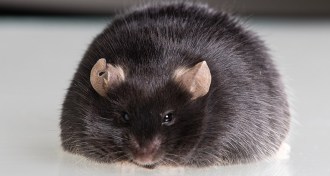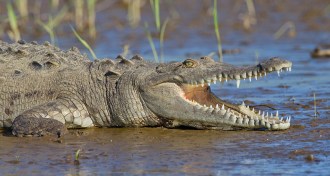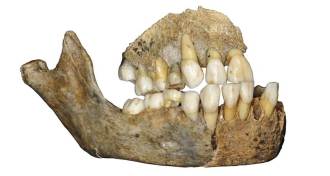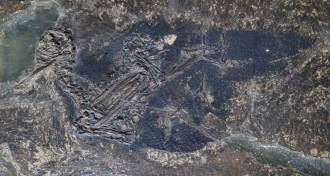News
-
 Climate
ClimateCO2 emissions are on track to take us beyond 1.5 degrees of global warming
Current and planned infrastructure will exceed the level of emissions that would keep global warming to 1.5 degrees Celsius, a new analysis finds.
-
 Astronomy
AstronomyHow the 2019 eclipse will differ from 2017’s — and what that means for science
This year’s total solar eclipse is visible late in the day from a relatively small slice of South America.
-
 Climate
ClimateIs climate change causing Europe’s intense heat? A scientist weighs in
Science News talks with climate scientist Karsten Haustein about attributing extreme heat events in Europe and South Asia to climate change.
-
 Materials Science
Materials ScienceLatest claim of turning hydrogen into a metal may be the most solid yet
If true, the study would complete a decades-long quest to find the elusive material. But such claims have been made prematurely many times before.
-
 Health & Medicine
Health & MedicineIn mice, a high-fat diet cuts a ‘brake’ used to control appetite
A fatty diet changes the behavior of key appetite-regulating cells in a mouse brain.
-
 Astronomy
AstronomyIn a first, telescopes tracked a lone fast radio burst to a faraway galaxy
First-time observations suggest that the cause of one-time fast radio bursts is different from what triggers repeatedly flashing radio bursts.
-
 Health & Medicine
Health & MedicineAntioxidants may encourage the spread of lung cancer rather than prevent it
Antioxidants protect lung cancer cells from free radicals, but also spur metastasis, two new studies suggest.
-
 Animals
AnimalsSome ancient crocodiles may have chomped on plants instead of meat
Fossil teeth of extinct crocodyliforms suggest that some ate plants and that herbivory evolved at least three times in crocs of the Mesozoic Era.
-
 Genetics
GeneticsDNA reveals a European Neandertal lineage that lasted 80,000 years
Ancient DNA from cave fossils in Belgium and Germany shows an unbroken genetic line of the extinct hominids emerged at least 120,000 years ago.
By Bruce Bower -
 Paleontology
PaleontologySigns of the color blue have been found in a fossil for the first time
Scientists think they’ve spotted hints of blue plumage in a fossilized bird from 48 million years ago.
-
 Health & Medicine
Health & Medicine3-D mammograms are popular, but are they better than 2-D?
The use of digital breast tomosynthesis, a newer breast cancer screening technology with limited evidence, has risen in recent years.
-
 Microbes
MicrobesGut microbes might help elite athletes boost their physical performance
Veillonella bacteria increased in some runners’ guts after a marathon, and may make a compound that might boost endurance, a mouse study suggests.